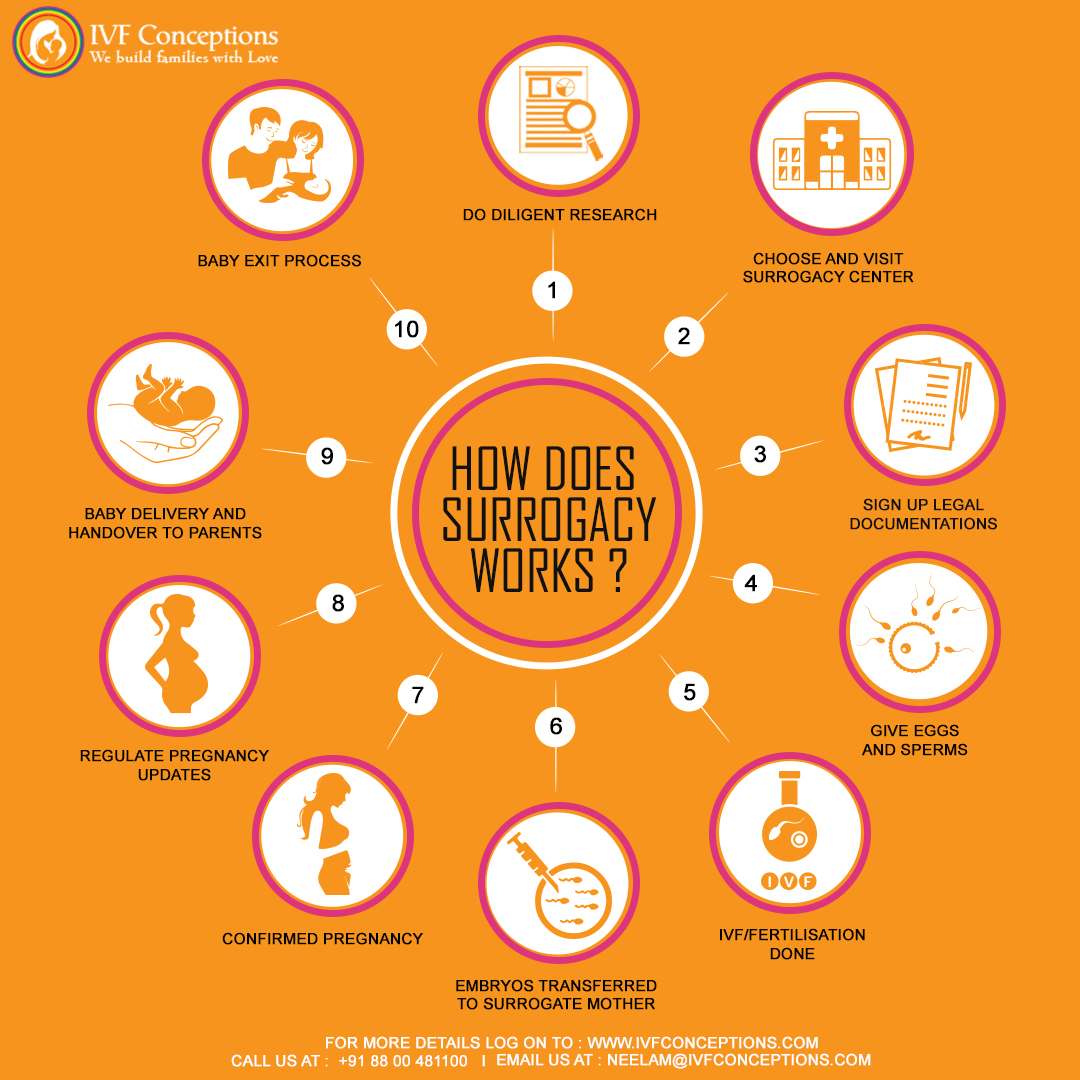Finding a Surrogate (2025): Your Guide to Gestational Carriers
Starting your search for a surrogate mother is a big step towards building your family through surrogacy. But where do you start? This guide will give you important insights into gestational carriers, the surrogacy process, and legal matters. It’s perfect for first-time parents or those who need a refresher. You’ll learn everything you need to find the right surrogate for your family. Let’s dive into how to find a surrogate mother for your surrogacy journey.
- Book an online appointment: Get a free online consultation.
- Call\W:+91-8800481100 Email:neelam@ivfconceptions.com
So, what’s the best way to find the perfect gestational carrier? Let’s explore the answers together.
More Resources to Read:
How Much Does a Surrogate Cost – Key Details Explained
Surrogate Mother Cost in Georgia
How to find surrogate mother in USA
Finding a Surrogate: Your Guide to Gestational Carriers
Key Takeaways
- Surrogacy agencies, clinics, and attorneys can help find and match you with qualified surrogate mothers.
- Asking family and friends, or joining online groups, can also help you find a surrogate.
- Think about things like location, legal issues, and if you’ll get along with the surrogate when picking one.
- Having a good relationship with your surrogate is key for a happy surrogacy journey.
- Surrogacy has legal and financial parts that need expert advice.
Understanding the Surrogacy Process
Starting a surrogacy journey is both exciting and complex. It’s key to know the steps and timeline of surrogacy. This includes finding a good surrogate, legal and medical steps, and more.
How Does Surrogacy Work?

Here are the main steps in surrogacy:
- Intended parents find a surrogacy agency or clinic to start.
- The agency helps match the parents with the right surrogate mother.
- The surrogate goes through medical and mental checks to make sure she’s ready.
- Legal contracts are made to cover everyone’s rights and duties.
- The embryo is transferred to the surrogate, often through IVF or similar methods.
- The surrogate carries the pregnancy to full term. The parents then legally become the child’s parents.
The Surrogacy Journey from Start to Finish

The surrogacy process can take months to a year or more. Here’s a timeline of the journey:
- Screening and Matching: Finding a good surrogate and doing all the checks can take 6 months or more.
- Legal and Medical Preparation: Making legal contracts and doing medical checks can take weeks to a few months.
- Embryo Transfer: The embryo transfer takes a few days, and then there’s a two-week wait to see if pregnancy is confirmed.
- Pregnancy and Delivery: The pregnancy lasts about 9 months. After the baby is born, the intended parents become the legal parents.
Knowing the full surrogacy process helps intended parents understand what to expect and succeed in their journey.
“Surrogacy is a complex process with many steps. It starts with finding a compatible surrogate, then moves to legal contracts, medical checks, and embryo transfer. The surrogate carries the pregnancy to term. Finally, the intended parents become the legal parents after the baby is born.”
Outlines the surrogacy process timeline for intended parents:
| Stage | Description of Stage | Duration |
|---|---|---|
| Research Phase | Explore family-building options and decide on surrogacy. | Personal timeframe |
| Consultation and Application | Choose a surrogacy agency, sign an agreement, and start embryo creation (if needed). | 1-3 Months |
| Matching | The agency finds and presents potential gestational carriers. Meet and decide on a match. | 3-6 Months |
| Medical Screening and Contracts | Carrier undergoes medical and psychological screening. Sign a surrogacy contract. | 1-2 Months |
| Embryo Transfer | Prepare for embryo transfer. Success may take multiple attempts. | 1-1.5 Months |
| Pregnancy | Gestational carrier’s pregnancy, approximately 40 weeks. | 9-10 Months |
| Birth and Postpartum | Baby’s birth, established parental rights, and the postpartum period. | 1.5-3 Months |
Please keep in mind that the durations mentioned in the table are approximate and can vary depending on individual circumstances and other factors. Always consult with a reputable surrogacy agency or professional to get personalized guidance throughout the surrogacy journey.
Where to Find Surrogate Mothers
When looking for a surrogate mother, intended parents have many options. They can work with surrogacy agencies, clinics, or attorneys. Each path helps find the right surrogate for their family.
Surrogacy Agencies and Matching Professionals
 Surrogacy agencies and professionals keep a list of screened surrogates. This makes it easier for parents to find a good match. They help with everything from the first meeting to legal and medical steps.
Surrogacy agencies and professionals keep a list of screened surrogates. This makes it easier for parents to find a good match. They help with everything from the first meeting to legal and medical steps.
Surrogacy Clinics
Some clinics offer surrogacy programs or can suggest qualified surrogates. They provide important medical advice. This ensures a smooth surrogacy journey for everyone.
Surrogacy Attorneys

Attorneys don’t match parents with surrogates but offer legal help. They help with contracts and legal issues. An experienced attorney is crucial for parents.
Personal contacts among family and friends
If you have family or friends who is able to be surrogates for you, that would be a great option as it might save a lot of costs and also give you emotional support to have someone known.
Choosing a partner for surrogacy is important. It should be someone trustworthy who guides you well. This ensures a good outcome for everyone.
| Surrogacy Matching Approach | Advantages | Disadvantages |
| Surrogacy Agency |
|
|
| Independent Surrogacy |
|
|
The choice between an agency or independent surrogacy depends on what parents want. It’s about their budget and how much support they need during the process.
how to Choosing the Right Surrogate?
Choosing the right surrogate is a big decision for those starting the surrogacy journey. It’s important to look at several key factors to make sure everyone has a good experience.

Factors to Consider When Selecting a Surrogate
An ideal surrogate mother is usually between 21 and 40 years old. This age range helps ensure good reproductive health and avoids age-related issues. The BMI should be between 19 and 33, sometimes up to 35, to prevent pregnancy and postpartum problems.
Having had a successful pregnancy before is a must for surrogates. This shows they can carry a pregnancy to term. Surrogates with a higher BMI might face longer pregnancies, which means more medical costs and longer waits.
Where the surrogate lives matters because surrogacy laws vary by state. It’s important to check the legal side to protect parental rights. The surrogate’s health history, including their genes, mental health, and medical tests, is key. It helps ensure a healthy pregnancy and birth.
Characteristics of an Ideal Surrogate Mother
| Characteristic | Details |
|---|---|
| Age Range | Ideally between 21 and 40 years old to ensure good reproductive health and avoid age-related issues. |
| BMI (Body Mass Index) | Should be between 19 and 33, sometimes up to 35, to prevent pregnancy and postpartum problems. |
| Previous Pregnancy | Must have had a successful pregnancy before, indicating the ability to carry a pregnancy to term. |
| Note: Surrogates with a higher BMI might face longer pregnancies, leading to increased medical costs and longer waits. | |
| Location | The surrogate’s place of residence matters due to varying surrogacy laws by state. |
| It’s crucial to check the legal aspects to protect parental rights. | |
| Health History | Includes genetic background, mental health, and comprehensive medical tests. |
| Ensures the surrogate is capable of a healthy pregnancy and birth. |
Building a Relationship with Your Surrogate
Building a strong relationship with the surrogate is vital for a good surrogacy experience. The surrogate’s relationship status affects how much involvement the intended parents want during pregnancy and after the baby is born. It also affects the support the surrogate gets.
Good communication, understanding, and a shared commitment are crucial for a positive partnership. By picking the right surrogate and working together, intended parents can go through surrogacy with confidence. This ensures the best outcome for everyone.
Legal Considerations in Surrogacy
 Starting a surrogacy journey means dealing with many legal steps. Surrogacy contracts, who gets parental rights, and following surrogacy laws are key legal topics. These laws vary by state.
Starting a surrogacy journey means dealing with many legal steps. Surrogacy contracts, who gets parental rights, and following surrogacy laws are key legal topics. These laws vary by state.
The legal steps in surrogacy include detailed contract talks. These cover money matters, medical care, and everyone’s rights and duties. It’s important for intended parents to team up with skilled surrogacy attorneys. They make sure everyone’s rights are looked after during the process.
Getting parental rights can be tough, especially if the parents aren’t biologically linked to the child. In some places, this might mean adopting as a stepparent or fully adopting the child. All the legal papers for this should be ready before the baby is born.
What legal steps you need to take can change a lot depending on where you live. Some states are more welcoming to surrogacy than others. It’s key for parents to check the surrogacy laws in their area. They should also work with local lawyers who know about assisted reproduction.
The legal side of surrogacy is complex and involves many parts. You need to understand the laws, negotiate contracts well, and work with experts. By tackling these legal issues early, parents can make their surrogacy journey smoother and more successful.
“Navigating the legal intricacies of surrogacy is crucial for ensuring the rights and protections of all parties involved. Working with specialized attorneys is essential to a successful surrogacy experience.”
Finding a Surrogate on your own
Some intended parents prefer to find a surrogate by themselves instead of using an agency. They look online or ask friends and family for leads. This way, they have more control over who becomes their surrogate.
-
Online Support Groups and Classifieds
The internet is a big help for those looking to find a surrogate on their own. Online surrogacy support groups and classifieds connect you with people wanting to be surrogates. You can post your needs, check out profiles, and talk to potential surrogates.
But, be careful when using online resources. Make sure the surrogates you find are safe and trustworthy. Surrogacy classifieds offer many options, but always check each person out well and get legal advice before making any decisions.
-
Networking with Family and Friends
Asking people you know can also help you find a surrogate. Friends, family, or coworkers might know someone interested in surrogacy. This way, you can find a surrogate you trust more easily.
Talking openly with your surrogate is key, whether you found them through friends or online. Building a good relationship with them is crucial for a successful surrogacy journey.
Choosing to find a surrogate by yourself means doing a lot of work. You’ll need to research, screen candidates, and get legal advice. But, it can be rewarding to make the process your own. It lets you find a surrogate who fits your needs better.
Financial Aspects of Surrogacy
Starting a surrogacy journey can be a big financial step. The costs can go from $100,000 to $200,000 or more. This includes embryo creation, fertility treatments, paying the surrogate, legal fees, counseling, and travel. It’s important for intended parents to think about these costs when planning their surrogacy journey.
Surrogacy Costs Breakdown

The surrogacy process has many parts, each with its own cost. Agency fees for matching and support, legal fees for agreements, paying the surrogate, life, and health insurance, IVF procedures, intended parents’ expenses, and counseling all add up. These costs make up the total surrogacy cost.
On average, surrogacy in the United States costs between $100,000 and $200,000. This big investment covers the key parts of the surrogacy process. It ensures a successful and legal journey for everyone involved.
Financial Assistance Options
Intended parents can look into different ways to make surrogacy more affordable. These include saving money, getting loans, grants, and insurance coverage. By planning and looking into these options, intended parents can work towards their dream of having a child through surrogacy.
One big plus of surrogacy is that it lets intended parents have a child genetically related to them. Thanks to new reproductive technology, surrogacy has high success rates. It’s a good option for people facing infertility or medical issues. Surrogacy also helps same-sex couples, single men, and women who want to have a child without the challenges of pregnancy.
| Surrogacy Cost Breakdown | Average Cost Range |
| Embryo Creation and Fertility Treatments | $25,000 – $35,000 |
| Surrogate Compensation | $50,000 – $61,000 |
| Legal Fees | $8,000 – $10,000 |
| Prenatal Care | $5,000 – $10,000 |
| Agency Fees and Administrative Costs | Varies by location |
| Total Average Cost | $100,000 – $200,000 |
Understanding the financial side of surrogacy and looking into help options lets intended parents make their dream of having a family come true.
Support and Resources for Intended Parents
Going through surrogacy can be tough for intended parents. Luckily, there are many surrogacy support options and surrogacy resources to help. These include agencies, groups, surrogacy counseling services, and surrogacy education materials. They make sure intended parents feel informed, supported, and strong throughout the surrogacy process.
Surrogacy agencies are a key source of surrogacy guidance and surrogacy community for intended parents. They offer full support, like matching parents with surrogates, handling legal stuff, and giving emotional and practical help.
Intended parents can also find great surrogacy support in online and in-person groups. These groups let parents connect with others who’ve gone through surrogacy. They can share stories and get advice on emotional and practical matters.
Surrogacy counseling services are very important too. The surrogacy path can be hard on parents’ mental health. These services help parents deal with surrogacy mental health issues, work through complex relationships with surrogates, and get ready for challenges.
Also, surrogacy education materials like webinars, workshops, and articles are key. They give parents the knowledge they need to make good choices and feel in control during the process.
More Resources to Read:
Debunking 5 Common Myths Associated with IVF
Disqualifications for Surrogacy – What You Need to Know
How Much Does a Surrogate Cost – Key Details Explained
Low-Cost Surrogacy Options for Intended Parents – Explore Now!
Conclusion
The surrogacy journey is complex but can be rewarding for those wanting to build their families. By understanding the process, legal aspects, and resources, people can move through it with confidence. This can greatly increase their chances of success.
Surrogacy has grown popular in recent years, with both traditional and gestational methods becoming more common. Studies show that children born through surrogacy often have strong relationships with their parents. They also show no big differences in thinking skills or emotional health compared to kids born naturally.
But, surrogacy can also bring emotional and physical challenges for the surrogate mothers. Intended parents need to think deeply about the legal, financial, and ethical sides of their choices. As surrogacy changes, we need more research and rules to protect everyone involved.
Our team has over 14 years of experience facilitating surrogacy arrangements, egg donation, and serving as an advocacy resource for infertile couples and LGBTQ individuals seeking to build families. Till now we have helped and supported thousands of the intended parents with their family-building journey, and we can help you as well. Happy to share the references from the past IPs if needed.
If you’d like to learn more about IVF, Egg Donation, or surrogacy services globally, check out the rest of our website at Georgia Surrogacy Agency. We offer legally secure and affordable surrogacy consulting services for FREE.
Our team has over 14 years of experience facilitating surrogacy arrangements, egg donation, and serving as an advocacy resource for infertile couples and LGBTQ individuals seeking to build families.
For more resources on IVF and Surrogacy, browse our other web page- IVF Conceptions.
For more resources on IVF and Surrogacy, browse our other web page- Complete Surrogacy.

FAQ for how to find a surrogate mother
What is surrogacy, and how does it work?
Surrogacy means a woman, called a surrogate, carries a pregnancy for another person or couple, the intended parents. She might be related to the child or use the parents’ embryo.
What are the steps involved in the surrogacy process?
The process starts with finding a good surrogate. Then, there are legal talks, medical checks, the embryo transfer, and the pregnancy until birth. After birth, the intended parents become the legal parents.
Where can I find a surrogate mother?
You can find a surrogate through agencies, fertility clinics, or lawyers specializing in surrogacy. These experts help match you with a qualified surrogate.
What should I consider when choosing a surrogate?
Think about the surrogate’s health, mental readiness, values, and where she lives. It’s key to build a strong, honest relationship with her for a good surrogacy experience.
What are the legal issues involved in surrogacy?
Legal issues include making contracts, deciding on parental rights, and following local laws. Working with a lawyer who knows surrogacy law is crucial to protect everyone’s rights.
Can I find a surrogate on my own without an agency?
Yes, you can look for a surrogate by yourself through online groups, ads, or friends. This way, you have more control over choosing her. But, it means you’ll have more work to do.
How much does surrogacy cost?
Surrogacy can be expensive, costing between $119,000 to $202,000 or more. This covers the surrogate’s pay, medical care, legal fees, and other costs. There are ways to get financial help to make it easier.
What support and resources are available for intended parents?
There are many groups and resources to help you through surrogacy, like agencies, support groups, counseling, and info. They make sure you’re well-informed and supported every step of the way.
Source Links
- Where Can I Find a Surrogate Mother? 5 Matching Options
- Finding a Surrogate Mother | How to Find a Surrogate | Surrogate Solutions
- How To Find a Surrogate Mother (2022)
- What Is Surrogacy and How Does It Work?
- Understanding the Surrogacy Process | Progyny

Highly esteemed, authoritative, and trusted professional with a 14-year of experience in international surrogacy. Advocate for Secure, Legal, and Affordable International Surrogacy.
Neelam Chhagani, MA (Counselling Psychology) and Holistic Infertility and Third-Party Reproduction Consultant.
Member of European Fertility Society, Best Surrogacy Blogger of 2020, with 300 dedicated blogs, and top contributor on Quora for Surrogacy.


Add Your Comment